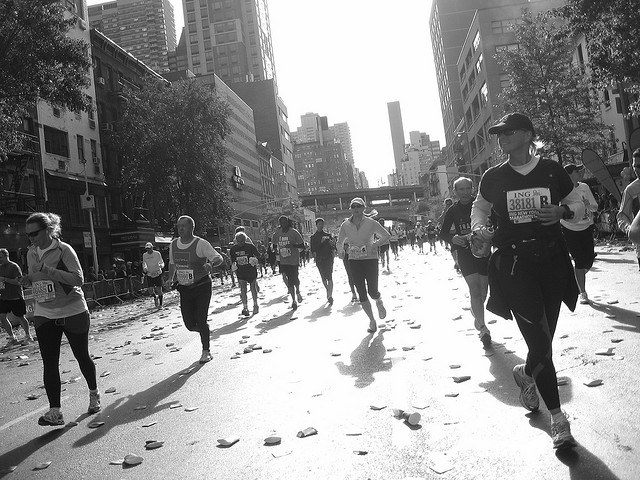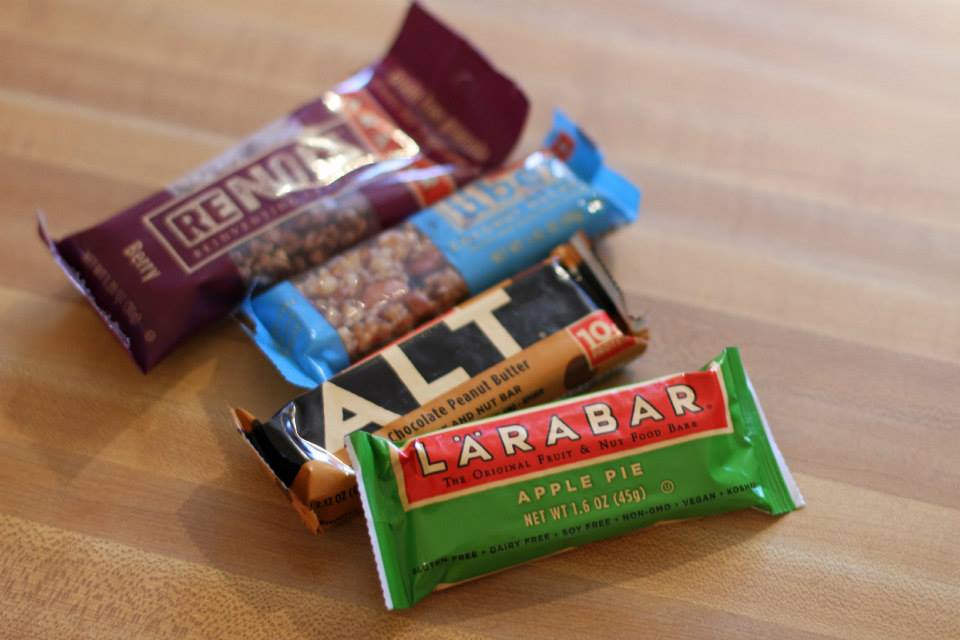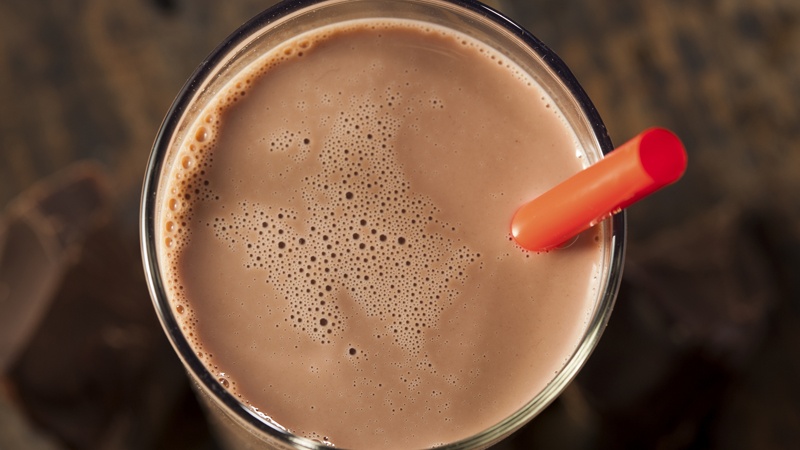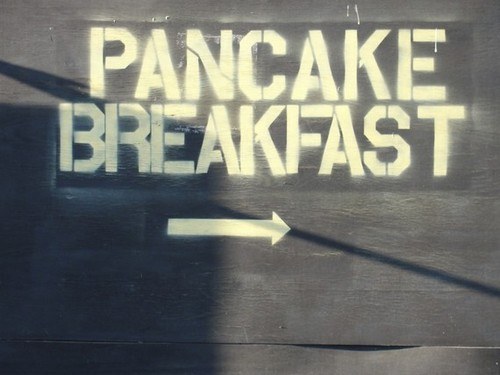Marathon Nutrition: Your Guide to Eating Well While You Train (and Race!)
 If you're running the New York City Marathon on November 2 (or any fall marathon!), you're likely thinking about long runs and the race day right about now.
If you're running the New York City Marathon on November 2 (or any fall marathon!), you're likely thinking about long runs and the race day right about now.
And while good form and mile time are key, it's going to be a lot harder to cross the finish line efficiently if you're not fueling properly.
"The biggest [mistake] for me, and what I also see with others, is it’s so easy to overeat while you’re training," says Kayleen St. John, MS, RD, the resident dietitian at Natural Gourmet Institute and an avid marathon runner. "Some people complain that they gain weight."
How to avoid that result and eat for performance and long-term health instead? St. John says you should try to stick to eating the same well-rounded healthy diet you'd eat any time of year, and then focus on how you're fueling before, during, and after your long-distance runs (usually qualified as "more than an hour").
We got her advice and food suggestions for each, so you can get started right away. —Lisa Elaine Held
(Photo: Flickr/Scottspitzer)
News flash: You actually don't need to switch to a high-carb diet in order to run a race, St. John says. Just stick to a balanced meal plan that includes some carbs, lots of fiber, protein, healthy fats, and of course lots of veggies, and try to gauge your actual hunger during the whole process. "Always try to make sure you're in tune with that," she says. Your daily meal plain should look something like these dishes:
Breakfast: Oatmeal with berries and nuts; a shake with fruit, veggies, and hemp seeds for fat and protein; avocado toast with red pepper flakes; eggs, veggies, and Sriracha in a sprouted tortilla

{{post.sponsorText}}
Lunch: A nutrient-dense salad, such as farro, purple kale, apple, sunflower seeds, and a dressing of lemon juice, olive oil, salt and pepper
Dinner: Miso and ginger glazed salmon with buckwheat noodles and snap peas; sweet potato and black bean enchiladas; acorn squash stuffed with brown basmati and walnut stuffing
Snacks: Banana or apple with nut butter; hard-boiled egg; veggies and hummus; frozen fruit with plain Greek yogurt; 1 slice avocado toast; trail mix with nuts, cocoa nibs, goji berries
*Meal timing will be dependent upon when training runs are done
(Photo: Genesmart.com)
Before you head out, you'll want to get in some sort of easily digestible carbohydrate. "The safest pre-race food is a banana," St. John says, or you could go for some sprouted toast with nut butter.
Don't go crazy with the nut butter, though, and avoid other fatty foods like avocado or coconut oil. "It can sit in your stomach and make you feel full, which you don’t want when you’re running," she explains.
(Photo: Framedcooks.com)
To keep yourself going as you're running, products like runner gels and gummies are a good option, and you should try them all during training runs to see which tastes and textures you tolerate the best, St. John suggests. While most are made with not-so-clean ingredients, she says if it keeps you going on a 20 mile run a few times a year, don't beat yourself up about it. "When you think about it, how many times a year are you actually consuming it?" she reasons.
But there are whole food options, too. "Some people have good results with dried fruit or honey packets," she says. Whole food granola bars like Larabars can work, too. The most important thing is figuring out what feels right for your body and what it feels like when you're slowing down from glycogen (a carb your body uses for energy) depletion. "As we run more, we learn from our own bodies what that feels like," she says.
(Photo: Facebook/Larabar)
"You should absolutely get something in the form of a recovery meal within 30 minutes to an hour after finishing a long run," St. John says. "That’s your prime time to restore glycogen."
While recovery meals from workouts like CrossFit may be totally protein-focused, she recommends a four-to-one ratio of carbs to protein for runners. "We use up more of our glycogen, so we need to be more focused on carbs," she says. That could mean a smoothie with fruit and yogurt or fruit and some kind of protein powder or even organic chocolate milk. "Some people debate it, but if you like and tolerate dairy, it has that really great carb-to-protein ratio, and it’s easy to drink," she says.
And make sure you think about this before you start celebrating. "Absolutely you deserve a beer, but try to get in some water and electrolytes, at least, before hitting the finish line tent full of kegs," she says.
(Photo: Thehealthyhoot.com)
True or false: Marathoners can eat whatever they want
Runner Rx: What to do when your workout wrecks your toenails
How Richard Blais lost 60 pounds running marathons (and eating well)
Loading More Posts...




